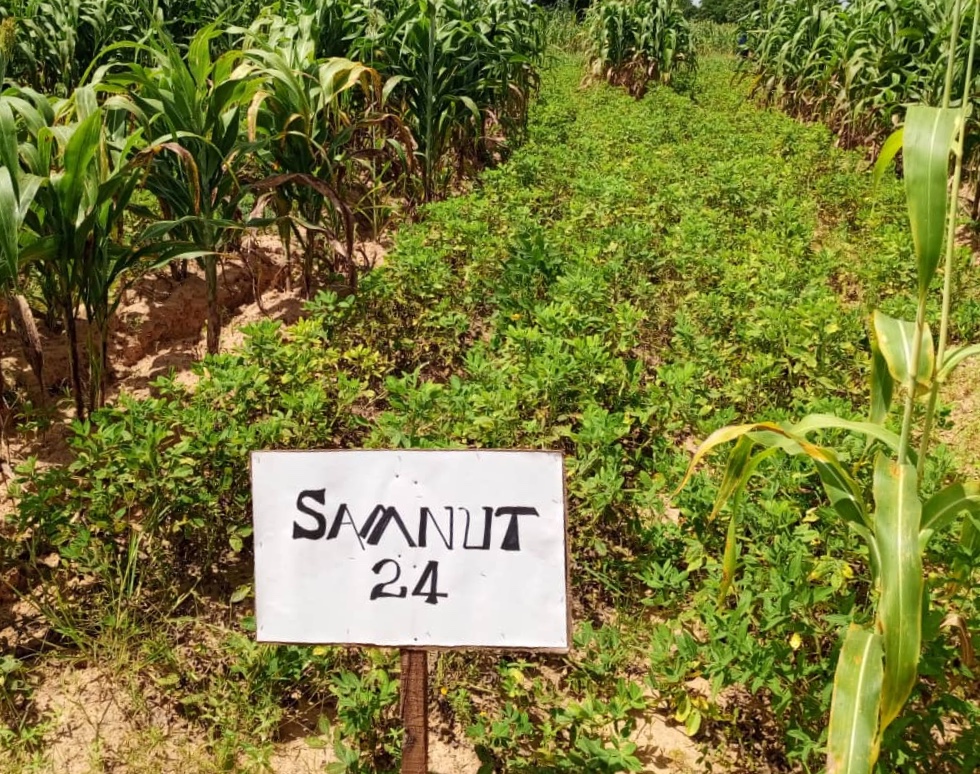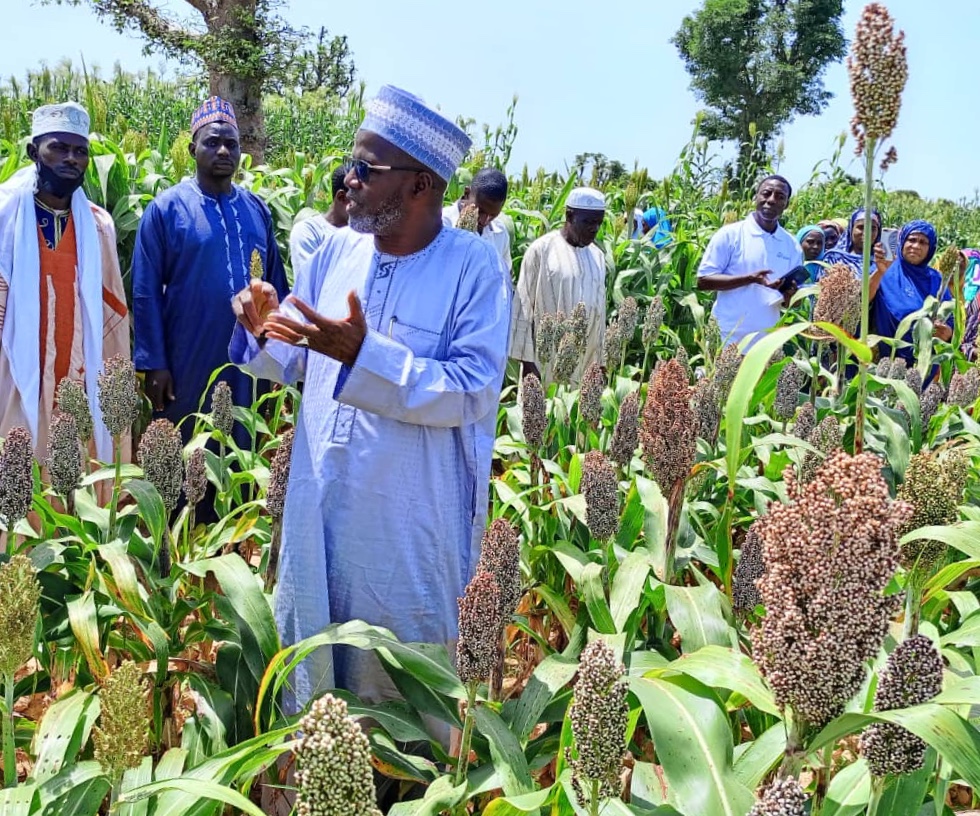
The improved varieties SAM 24, SAM 27, SAM 26, are essentially fortified to produce high-yield crops, early generation, and resistance to bio and abiotic resources inimical to crop development.
Conducting journalists around the demonstration plots at Doka village in Tofa local council, Kano State, on Wednesday, Deputy Director of the Centre, Professor Sanusi Mohammad Gaya, explained that the
Brownfield demonstration intended to showcase the significant results of the technologies.
Gaya hinted that the outcome of the trial has justified the commitment of the centre to enhance food production, empower smallholder farmers and the university’s community service.
With the improved varieties, Professor Mohammad emphasised that farmers would harvest a high yield of not less than 1,000 kg per hectare, equivalent to 50 bags of in-shell groundnut against 200 kg per hectare harvest on the local breed.

Besides, the CDA deputy director, noted that the new technologies have early maturity of 100 days after which farmers can harvest. He added that 50 farmers including women counterparts already benefiting from the CDA seeds in Doka and other villagers, among the 22 university communities.
“The essence of the field day is to showcase the impact of the improved seeds produced by the centre. The centre demonstrates new technologies in groundnut and sorghum production. The drought of quality seeds for high production prompted the research for new varieties.
“We have come out with SAM 26 and SAM 27 for early maturity, high yielding improved resistance to bio and abiotic resources, and tolerance to drought. When you evaluate local varieties of groundnut, farmers hardly get 200kg per hectare about 5 bags but with the improved seeds, farmers will have a minimum of 1,000 kg, one tons and about 50 bags of in-shell groundnut,” Gaya explained.
One of the benefiting farmers, Abubakar Aminu, who narrated his experience with SAM 26 and SAM 27, stressed the improved varieties have proved significantly better than the local seeds. Aminu said the improved seeds received from CDA, started generating within two months of production against the usual tradition with local breeds.
CDA introduced the new technologies under Accelerated Varietal Improvement and Seed Systems in Africa (AVISA), a project launched in February 2019 and being funded by Bill and Melinder Gates Foundation, led by International Crops Research Institute for the Semi-Arid Tropics (ICRISAT) with several implementing partners include CDA, BUK.
The project is targeted to improving the breeding and seed system, as well as enhancing the livelihood of small-scale producers and consumers of groundnuts and sorghums, millets, beans and cowpea. AVISA project is presently implemented in seven countries of Nigeria, Burkina Faso, Ethiopia, Mali, Ghana, Tanzania and Uganda.



